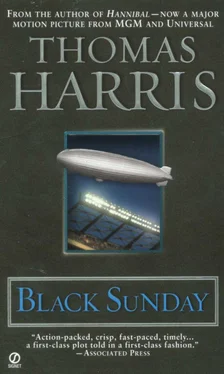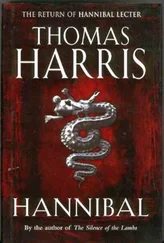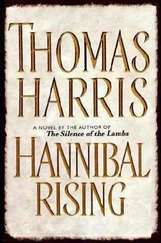By 1955, Lander was one of the most proficient airship pilots in the world. In December of that year, he was second of ficer on a series of hazardous flights from South Weymouth Naval Air Station in Massachusetts, testing the effects of ice accumulation in bad weather. The flights won for the crew the Harmon Trophy for that year.
And then there was Margaret. He met her in January at the officers’ club at Lakehurst, where he was being lionized after the flights from South Weymouth. It was the beginning of the best year of his life.
She was twenty years old and good-looking and fresh from West Virginia. Lander the lion, in his perfect uniform, knocked her out. Oddly, he was the first man for her and, while teaching her was a great satisfaction to him, the memory of it made things much more difficult for him later when he believed that she had others.
They were married in the chapel at Lakehurst with its plaque made of wreckage from the airship Akron.
Lander came to define himself in terms of Margaret and his profession. He flew the biggest, longest, sleekest airship in the world. He thought Margaret was the best-looking woman in the world.
How different Margaret was from his mother! Sometimes when he awakened from dreaming of his mother, he looked at Margaret for a long time, admiring her as he checked off the physical differences.
They had two children, they went to the Jersey shore in the summer with their boat. They had some good times. Margaret was not a very perceptive person, but gradually she came to realize that Lander was not exactly what she had thought. She needed a fairly constant level of reinforcement, but he swung between extremes in his treatment of her. Sometimes he was cloyingly solicitous. When he was thwarted in his work or at home, he became cold and withdrawn. Occasionally he showed flashes of cruelty that terrified her.
They could not discuss their problems. Either he adopted an annoying pedantic attitude or he refused to talk at all. They were denied the catharsis of an occasional fight.
In the early sixties he was away much of the time, flying the giant ZPG-3W. At 403 feet, it was the biggest nonrigid airship ever built. The forty-foot radar antenna revolving inside its vast envelope provided a key link in the country’s early-warning system. Lander was happy, and his behavior while he was at home was correspondingly good. But the extension of the Distant Early Warning Line, the “DEW Line” of permanent radar installations, was eating into the airships’ defense role, and in 1964 the end came for Lander as a Navy airship pilot. His group was disbanded, the airships were dismantled, and he was on the ground. He was transferred to Administration.
His behavior toward Margaret deteriorated. Scalding silences marked their hours together. In the evenings he cross-examined her about her activities during the day. She was innocent enough. He would not believe it. He grew physically indifferent to her. By the end of 1964, her activities in the daytime were no longer innocent. But, more than sex, she sought warmth and friendship.
Lander volunteered for helicopters during the Vietnam expansion, and he was readily accepted. He was distracted now by his training. He was flying again. He gave Margaret expensive presents. She felt uncomfortable and uneasy about them, but this was better than the way he had acted before.
On his final leave before shipping out to Vietnam they went to Bermuda for a good vacation. If Lander’s conversation was tiresomely larded with the technicalities of rotary-wing aircraft, he was at least attentive, sometimes loving. Margaret responded. Lander thought he had never loved her so much.
On February 10, 1967, Lander flew his 114th air-sea rescue mission off the carrier Ticonderoga in the South China Sea. A half hour after moonset, he hung over the dark ocean off Dong Hoi. He was in a holding pattern fifteen miles at sea, waiting for some F-4s and Skyraiders coming home from a raid. One of the Phantoms was hit. The pilot reported that his starboard engine had conked and he was showing a fire light. He would try to make it to the sea before he and the second officer ejected.
Lander, in the rattling cockpit of his helicopter, was talking to the pilot all the time, Vietnam a dark mass to his left.
“Ding Zero One, when you’re well over the water gimme some lights if you gottem.” Lander could find the Phantom crew on the water by their homing device, but he wanted to cut down on the time as much as possible. “Mr. Dillon; he said to the door gunner, ”we’ll go down with you facing landward. Ops confirms no friendly vessels are close by. Any boat that ain’t rubber ain’t ours.”
The voice of the Phantom pilot was loud in his earphones. “Mixmaster, I’ve got a second fire light and she’s filling up with smoke. We’re punching out.” He yelled the coordinates, and before Lander could repeat them for confirmation he was gone.
Lander knew what was happening—the two-man crew pulling down their face curtains, the canopy blowing off, the fliers rocketing up into the cold air, turning in their ejection seats, the seats falling away, and then the jar and the cool rush down through the darkness to the jungle.
He wheeled the big helicopter landward, blades slapping the heavy sea air. He had a choice now. He could wait for air cover, hang around trying to contact the men by radio, waiting for protection, or he could go in.
“There it is, sir:” The copilot was pointing.
Lander could see a shower of fire a mile inland as the Phantom blew up in the air. He was over the beach when the homing signal came through. He called for air cover, but he did not wait for it. The helicopter, showing no lights, skimmed over the double canopy forest.
The light signal blinked from the narrow, rutted road. The two on the ground had the good sense to mark a landing zone for him. There was room for the rotor between the banks of trees flanking the road. Setting it down would be quicker than pulling them up with the hook one by one. Down, sinking between the banks of trees, blowing the weeds flat at the sides of the road, and suddenly the night was full of orange flashes and the cockpit ripped around him. Splattered with the copilot’s blood, falling, rocking crazily, the smell of burning rubber.
The bamboo cage was not long enough for Lander to stretch out in it. His hand had been smashed by a bullet, and the pain was constant and terrible. He was delirious part of the time. His captors had nothing to treat him with except a little sulfa powder from an old French medical kit. They took a thin plank from a crate and bound the hand flat against it. The wound throbbed constantly. After three days in the cage, Lander was marched northward to Hanoi, prodded along by the small, wiry men. They were dressed in muddy black pajamas and carried very clean AK-47 automatic rifles.
During the first month of his confinement in Hanoi, Lander was half crazy with the pain in his hand. He was in a cell with an Air Force navigator, a thoughtful former zoology teacher named Jergens. Jergens put wet compresses on the mangled hand and tried to comfort Lander as best he could, but Jergens had been confined for a long time and he was very shaky himself. Thirty-seven days after Lander arrived, Jergens reached the point where he could not stop yelling in the cell and they took him away. Lander cried when he was gone.
One afternoon in the fifth week, a young Vietnamese doctor came into the cell carrying a small black bag. Lander shrank away from him. He was seized by two guards and held while the doctor injected a powerful local anesthetic into his hand. The relief was like cool water flowing over him. In the next hour, while he could think, Lander was offered a deal.
It was explained to him that the Democratic Republic of Vietnam’s medical facilities were terribly inadequate to treat even their own wounded. But a surgeon would be provided to repair his hand and drugs would be administered to ease the pain—if he signed a confession of his war crimes. It was clear to Lander that if the mangled meat at the end of his arm were not repaired, he would lose the hand and possibly the entire arm. He would never fly again. He did not believe that a confession signed under these circumstances would be regarded seriously at home. Even if it was, he preferred the hand to anyone’s good opinion. The anesthetic was wearing off. Pain was beginning to shoot up his arm again. He agreed.
Читать дальше












